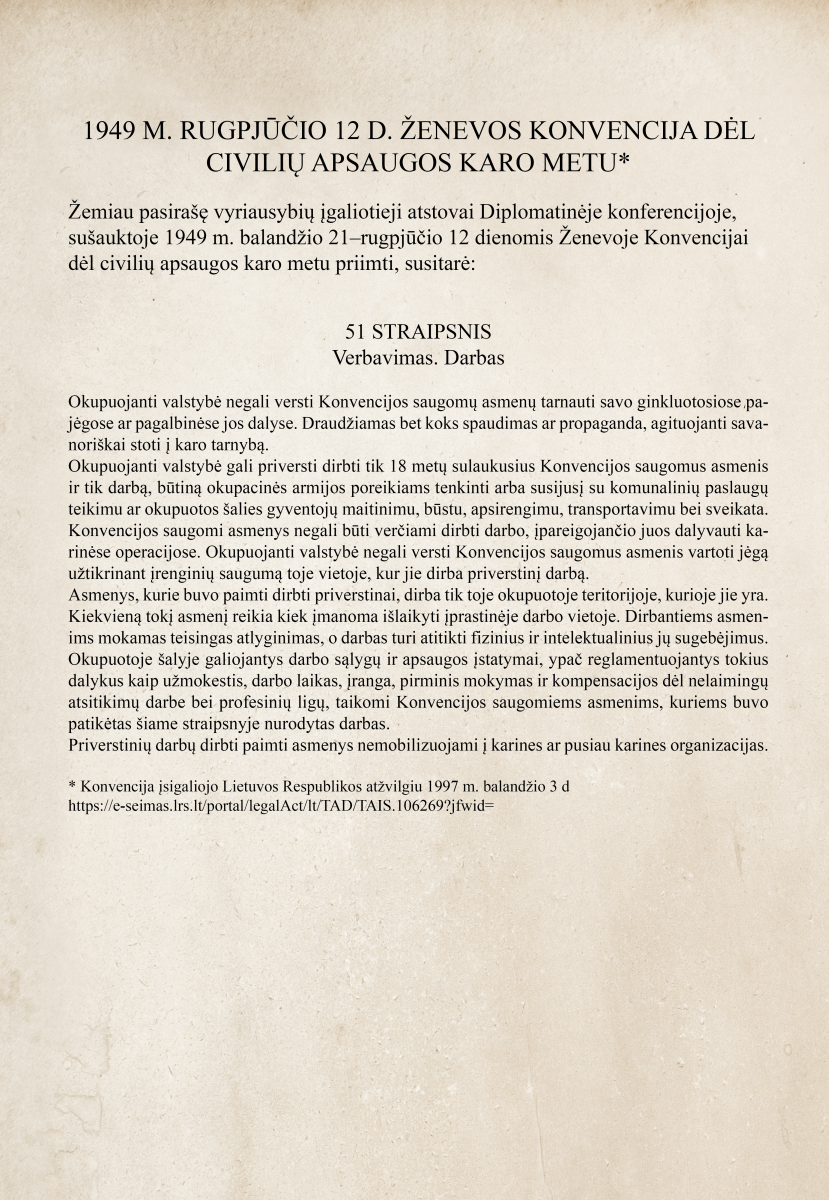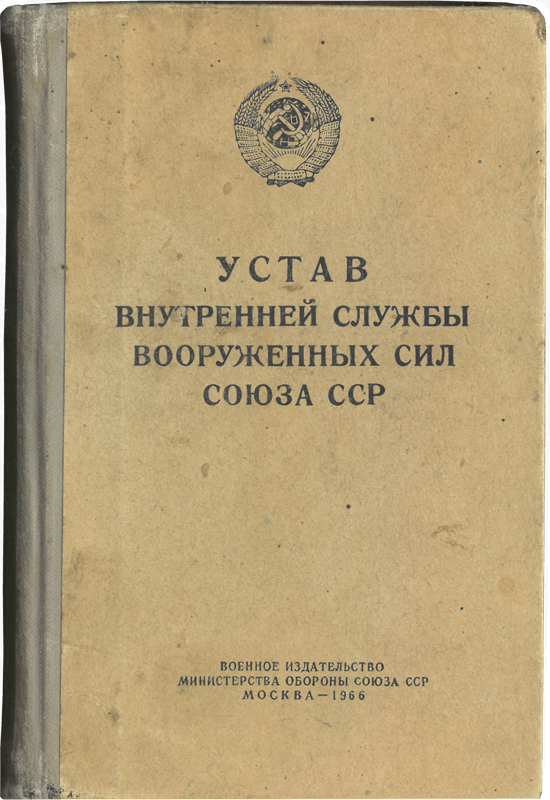On the 15th of June 1940, the USSR occupied the Republic of Lithuania, a member of the League of Nations. The USSR committed an international crime, but World War II was under way and the Bolshevik Russian Empire had concluded a treaty with Nazi Germany and felt like it was the master of the situation, so it created a puppet formation in Lithuania and called it the LSSR. The consequences of this coercive act, like the annexations of the other Baltic States, were not recognised by Great Britain, the Vatican, Switzerland, the United States and some South American countries. However, the USSR ignored this.
Even after the end of the war, until the very end of its age of agony, it did not comply with the international agreements, their additions, and other acts that it had signed itself or were otherwise binding. The same policy continues under the successor of the communist empire – today’s Russia.
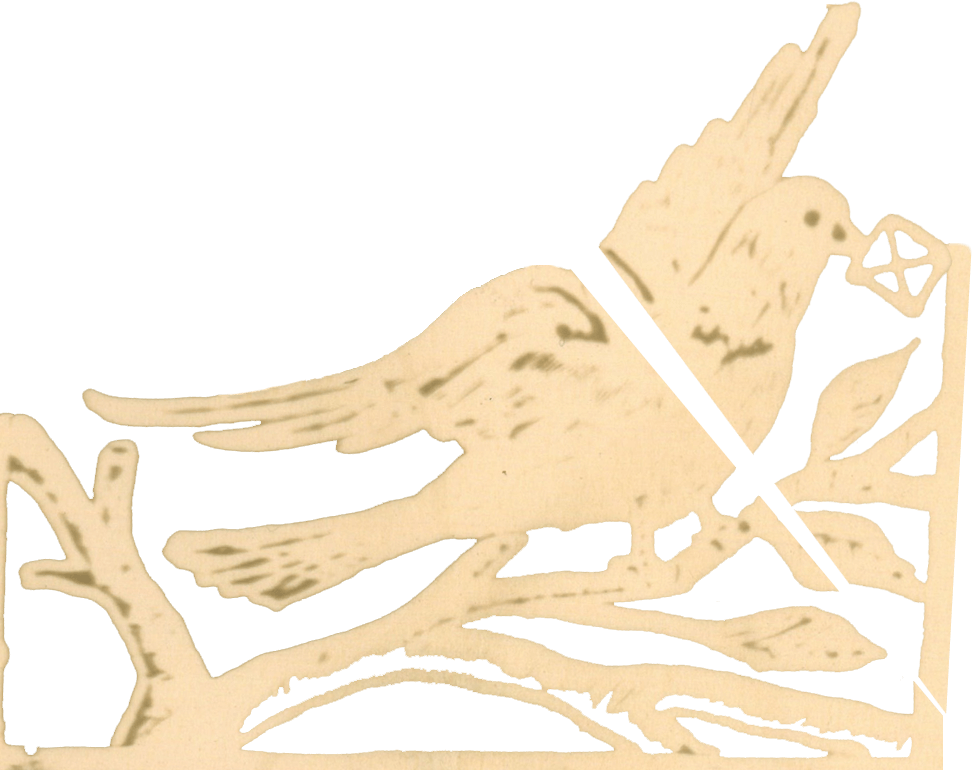
Hague Convention IV
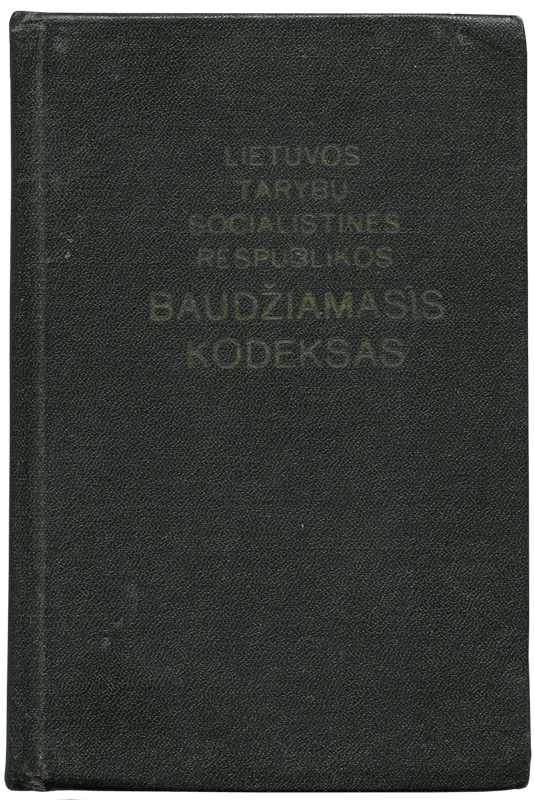
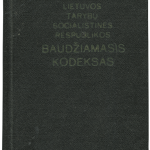
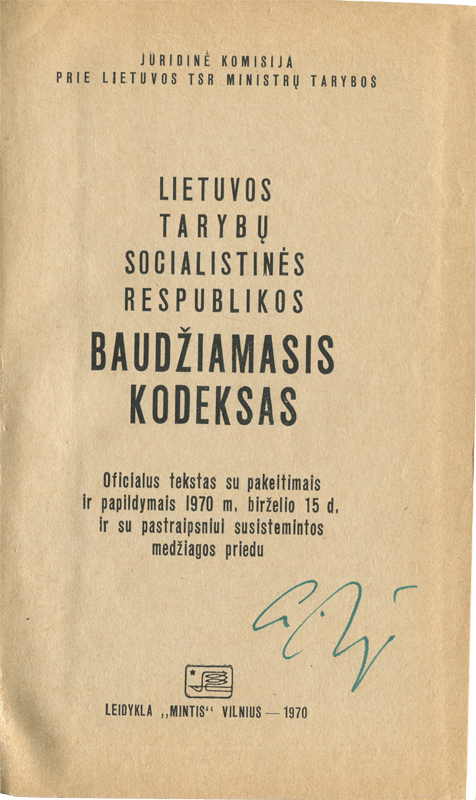
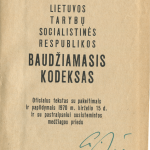
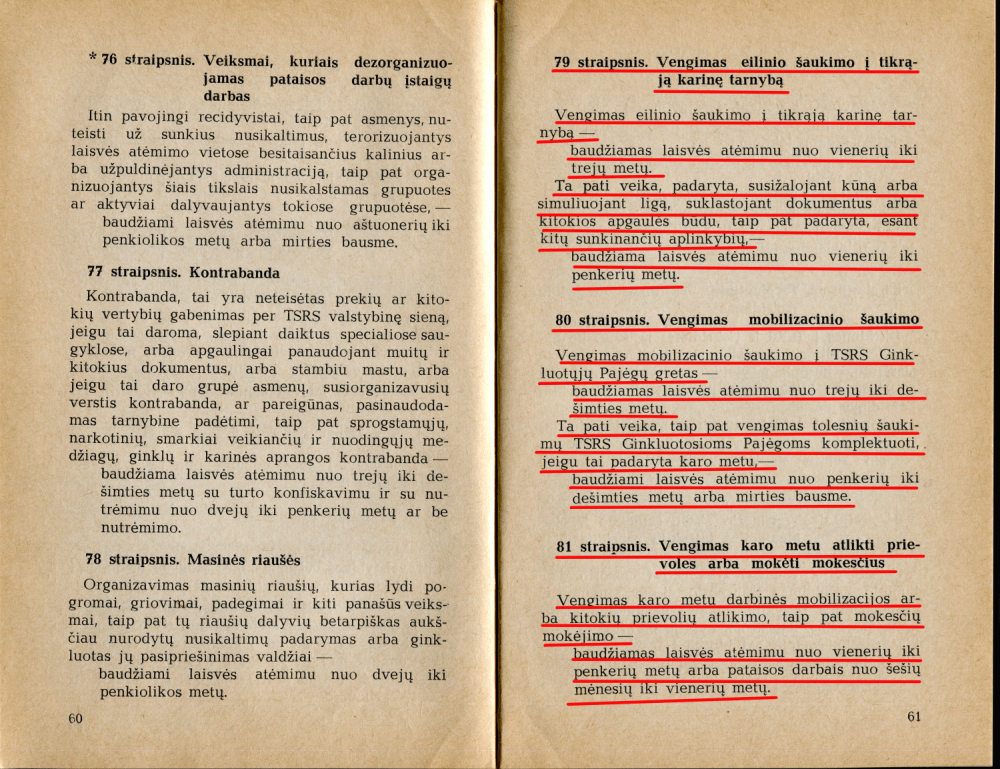
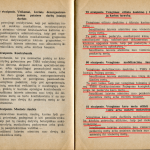
LSSR 1970 Criminal Code. Article 79 of this Code provided prison sentences from one to five years, depending on the circumstances, for Lithuanian men who avoided being called up for actual military service. Meanwhile, Article 80 of the Code, titled “Evading mobilisation call-up”, provided prison sentences from three to ten years or even the death penalty, depending on the circumstances. Vilnius, 1970
(Museum of Occupations and Freedom Fights)
Geneva Convention
“Historical Right”
Criminal Code
In 1940, the Kremlin brought the Criminal Code of the RTFSR into force in Lithuania. Under this Code, law enforcement subjected Lithuanian residents to repression and prosecuted them for alleged crimes, committed before the occupation, when the Code was not yet in force. According to this Code and other legal acts of the USSR, Lithuanian men were punished for deserting or evading compulsory military service and “violations of military service”.
In 1961, the USSR government issued a slightly modified version of the Russian Criminal Code, applicable to the annexed Lithuania – the Criminal Code of the LSSR. Time passed, but nothing changed. Article 29 of a new version of the Constitution of the Lithuanian Soviet Socialist Republic of 1978 that was applicable to annexed Lithuania stated: “For the defence of the Soviet people’s socialist victories, peaceful work, state sovereignty and territorial integrity, the Armed Forces of the USSR have been created and universal military conscription has been established.
The duty of the Armed Forces of the USSR to the people is to reliably defend the socialist Fatherland, and to constantly be in a state of combat readiness that would guarantee an immediate rebuff to any aggressor.” (Gazette of the Supreme Council and the Government of the Lithuanian SSR, 1978, No. 11-130).
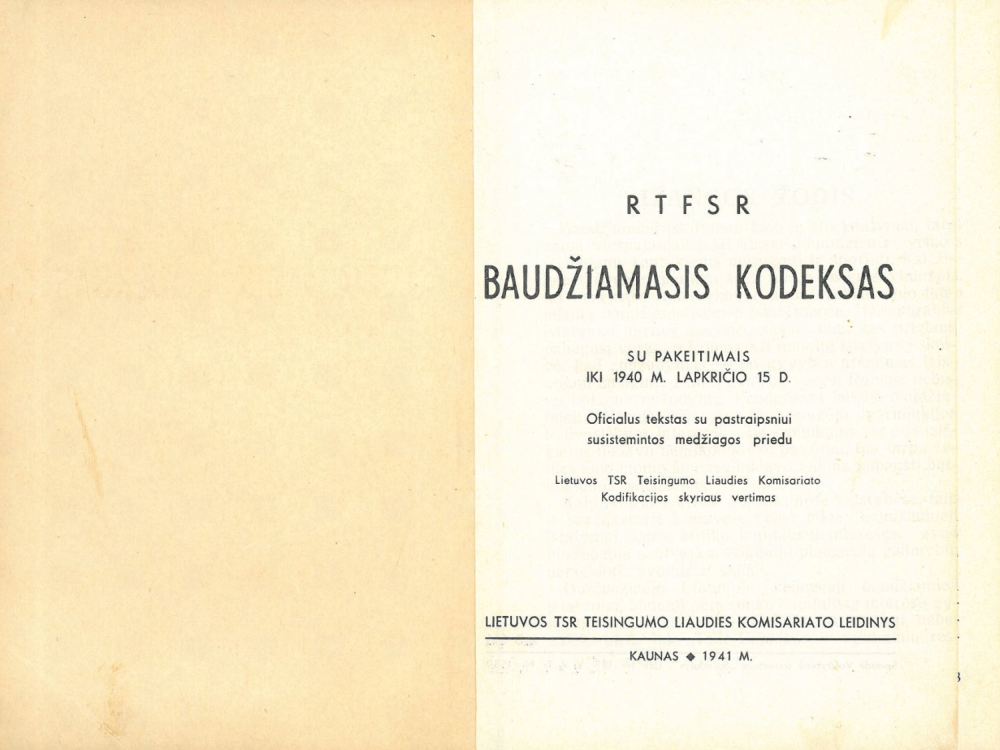
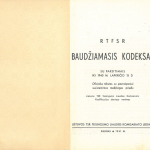
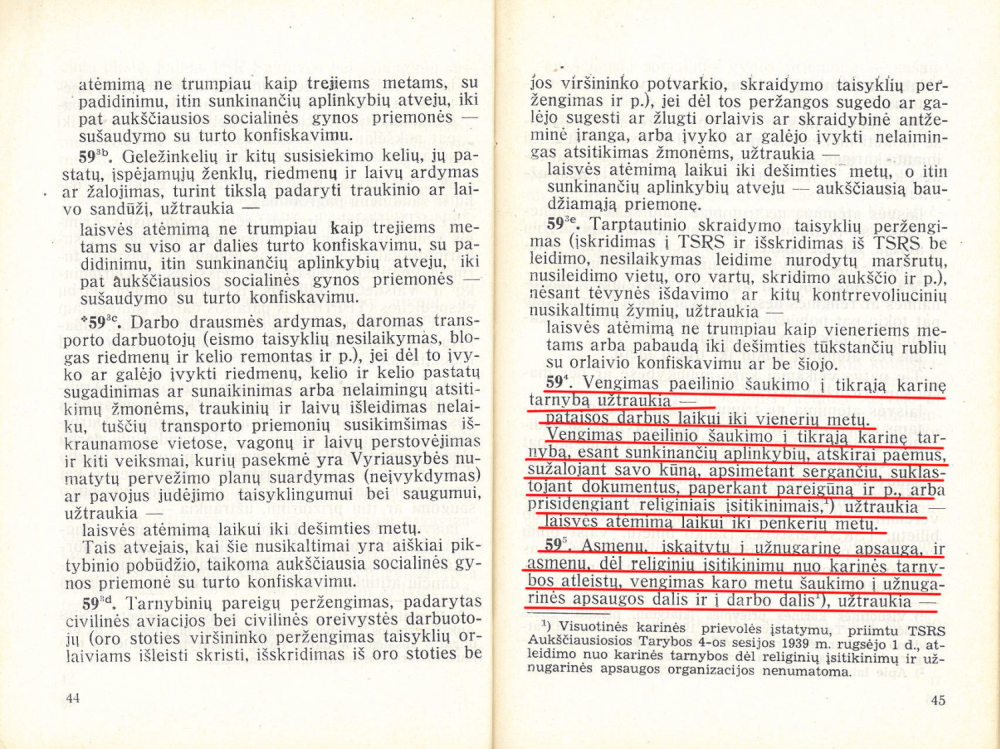
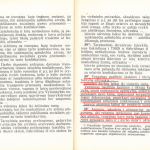
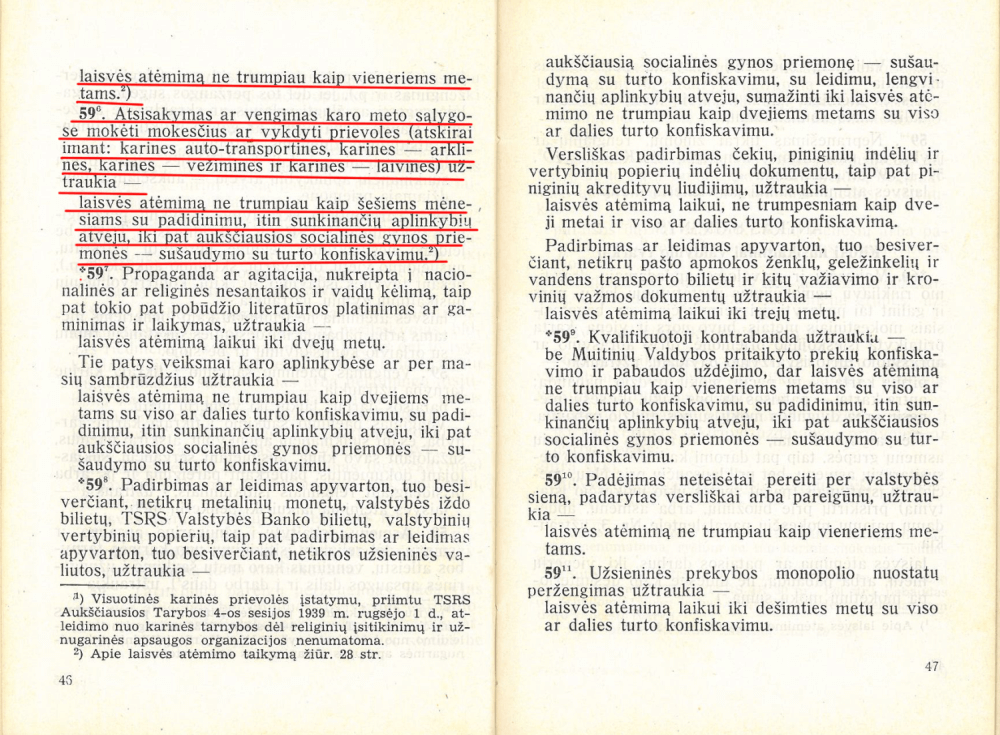
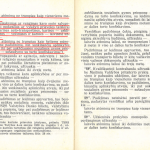
In 1941, the Criminal Code of the RSFSR was translated in occupied Lithuania. According to the articles of this Russian Code, residents were punished for the acts, committed before the 15th of June, 1940 occupation. Once the reoccupation of Lithuania began in 1944, deserters and other Lithuanian men, evading mobilisation into the Soviet Army, were tried under paragraphs 4, 5 and 6 of Article 59 of the Code. Kaunas, 1941
(Museum of Occupations and Freedom Fights)
